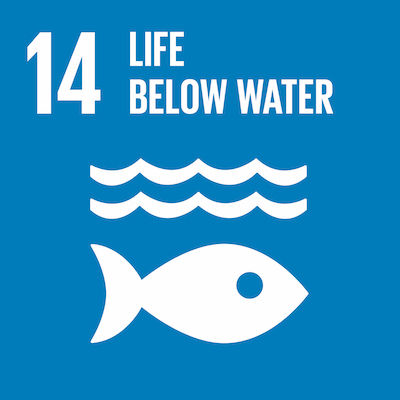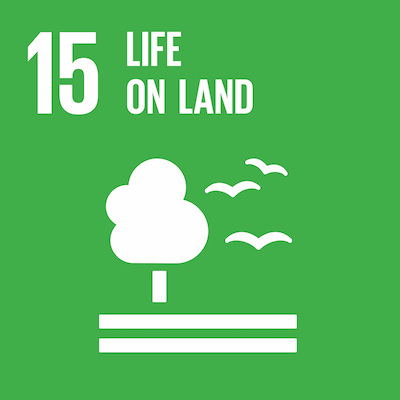The Science Council of Japan made the very interesting exercise of classifying the resolutions it adopted in the period 2014-2017 according to the SDGs. Let’s have a look at SDG14 and SDG15.
Previous post on the same topic.
 SDG14: Life below water
SDG14: Life below water
Necessity of research on ecological and health effects of water pollution by microplastics and plastic governance
The worldwide plastic pollution of the ocean is the origin of microplastics that carry hazardous chemicals and is incompatible with a sustainable society. In order to achieve goals of “Transforming our world: the 2030 Agenda for Sustainable Development Goals (SDGs)” such as 11 “Sustainable cities and communities”, 12 “Responsible consumption, production”, 13 “Climate action”, 14 “Life below water” and 15 “Life on land”, it is necessary for the government, private sector, academia, and companies to work together urgently.
Promoting the water industry with protecting various creatures in the sea: Sustainable fisheries in Japan – An ecosystem approach for fishery management
Although the sushi boom is global, Japan’s fisheries production decreased to 4.4 million metric tons in 2016 from its peak of 12.8 million metric tons recorded in 1984. This decrease is caused by various factors such as aging fishermen, dwindling domestic consumer demand for fish, and so on. This recommendation focuses on the problem of fishery resource depletion, proposing that ecosystem approach for fisheries management should be introduced and scientific monitoring of the ocean should be continued.
Support research for the oceans, sea and marine resources: securing navigation days of research vessels indispensable for the promotion of Japan’s marine science
Understanding complex marine processes is very important from the perspective of reliable prediction of our future environment. It is also crucial for securing living/non-living marine resources, conserving ecosystems, and preventing natural disasters. Despite the importance of training scientists engaged in marine science, navigation days of research vessels for that purpose have decreased by half in the past five years. This means that the practical training period for young marine scientists has decreased drastically. SCJ sounded a warning on this kind of situation in Japan.
 SDG15: Life on land
SDG15: Life on land
Necessity of research on ecological and health effects of water pollution by microplastics and plastic governance
The worldwide plastic pollution of the ocean is the origin of microplastics that carry hazardous chemicals and is incompatible with a sustainable society. In order to achieve goals of “Transforming our world: the 2030 Agenda for Sustainable Development Goals (SDGs)” such as 11 “Sustainable cities and communities”, 12 “Responsible consumption, production”, 13 “Climate action”, 14 “Life below water” and 15 “Life on land”, it is necessary for the government, private sector, academia, and companies to work together urgently.
Protection of green in the city with flexible thinking: recommendations for the development of the New National Stadium Japan based on the history of the Jingu Gaien – for the realization of the “genuine forest” rooted in the earth
Meiji Jingu Gaien boasts a natural environment where diverse organisms inhabit, despite its short history of being built in 1926. However, the ecology in the Gaien will also be affected as a result of the construction of the New National Stadium Japan, if a park with artificial ground is created. Therefore, JSC suggested the creation of a “Mori” which is capable of sustainable growth by rooting in the earth without artificial ground in accordance with the vegetation zone of the area and maintaining a sound water circulation.
Coexistence of cost burden and promotion of genetic research for protecting biodiversity: the treatment of digital sequence information with respect to the Convention on Biological Diversity and the Nagoya Protocol
To achieve the objectives of the Convention on Biological Diversity and the Nagoya Protocol, prompt registration to public databases and the free utilization of digital sequence information are essential. From this perspective, JSC supports the views that the Japanese government submitted to the Secretariat of the Convention on Biological Diversity in September 2017 and made their recommendations.








